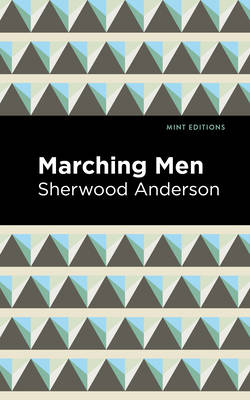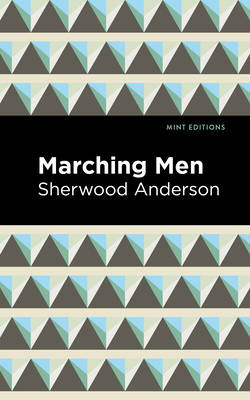
- Afhalen na 1 uur in een winkel met voorraad
- Gratis thuislevering in België vanaf € 30
- Ruim aanbod met 7 miljoen producten
- Afhalen na 1 uur in een winkel met voorraad
- Gratis thuislevering in België vanaf € 30
- Ruim aanbod met 7 miljoen producten
Omschrijving
Marching Men (1917) is a novel by Sherwood Anderson. Both fictional and autobiographical, Anderson's second novel is a coming of age story that explores the individual and collective identities shaping American life. Although he is known today for his story collection Winesburg, Ohio, a pioneering work of Modernist literature admired for its plainspoken language and psychological detail, Anderson's Marching Men is a powerful work of fiction that helped establish him as a leading realist writer of his generation. "In a country of so many varied climates and occupations as America it is absurd to talk of an American type. The country is like a vast disorganised undisciplined army, leaderless, uninspired, going in route-step along the road to they know not what end." At a young age, Norman McGregor, a misfit dreamer, knows this to be true of his country. Fourteen-year-old Norman, ironically named "Beaut" for his homely appearance, works alongside his mother at a bakery in the town of Coal Creek. When frustration over unpaid debts leads him to close the bakery, a group of disgruntled miners nearly destroys his family's only source of income. At the last second, a group of soldiers marches in to protect them, inspiring Norman with a sense of unity. As a young man, he leaves his hometown for Chicago, where he develops a relationship with a woman who introduces him to politics and labor organizing. Unable to shake the memory of the marching soldiers, he dedicates his life to collective empowerment. Marching Men is a story of the American Dream, for all of its difficult truths and convenient fictions. This edition of Sherwood Anderson's Marching Men is a classic of American literature reimagined for modern readers.
Since our inception in 2020, Mint Editions has kept sustainability and innovation at the forefront of our mission. Each and every Mint Edition title gets a fresh, professionally typeset manuscript and a dazzling new cover, all while maintaining the integrity of the original book.
With thousands of titles in our collection, we aim to spotlight diverse public domain works to help them find modern audiences. Mint Editions celebrates a breadth of literary works, curated from both canonical and overlooked classics from writers around the globe.
Specificaties
Betrokkenen
- Auteur(s):
- Uitgeverij:
Inhoud
- Aantal bladzijden:
- 198
- Taal:
- Engels
- Reeks:
Eigenschappen
- Productcode (EAN):
- 9781513283500
- Verschijningsdatum:
- 11/05/2021
- Uitvoering:
- Paperback
- Formaat:
- Trade paperback (VS)
- Afmetingen:
- 127 mm x 203 mm
- Gewicht:
- 222 g

Alleen bij Standaard Boekhandel
Beoordelingen
We publiceren alleen reviews die voldoen aan de voorwaarden voor reviews. Bekijk onze voorwaarden voor reviews.







